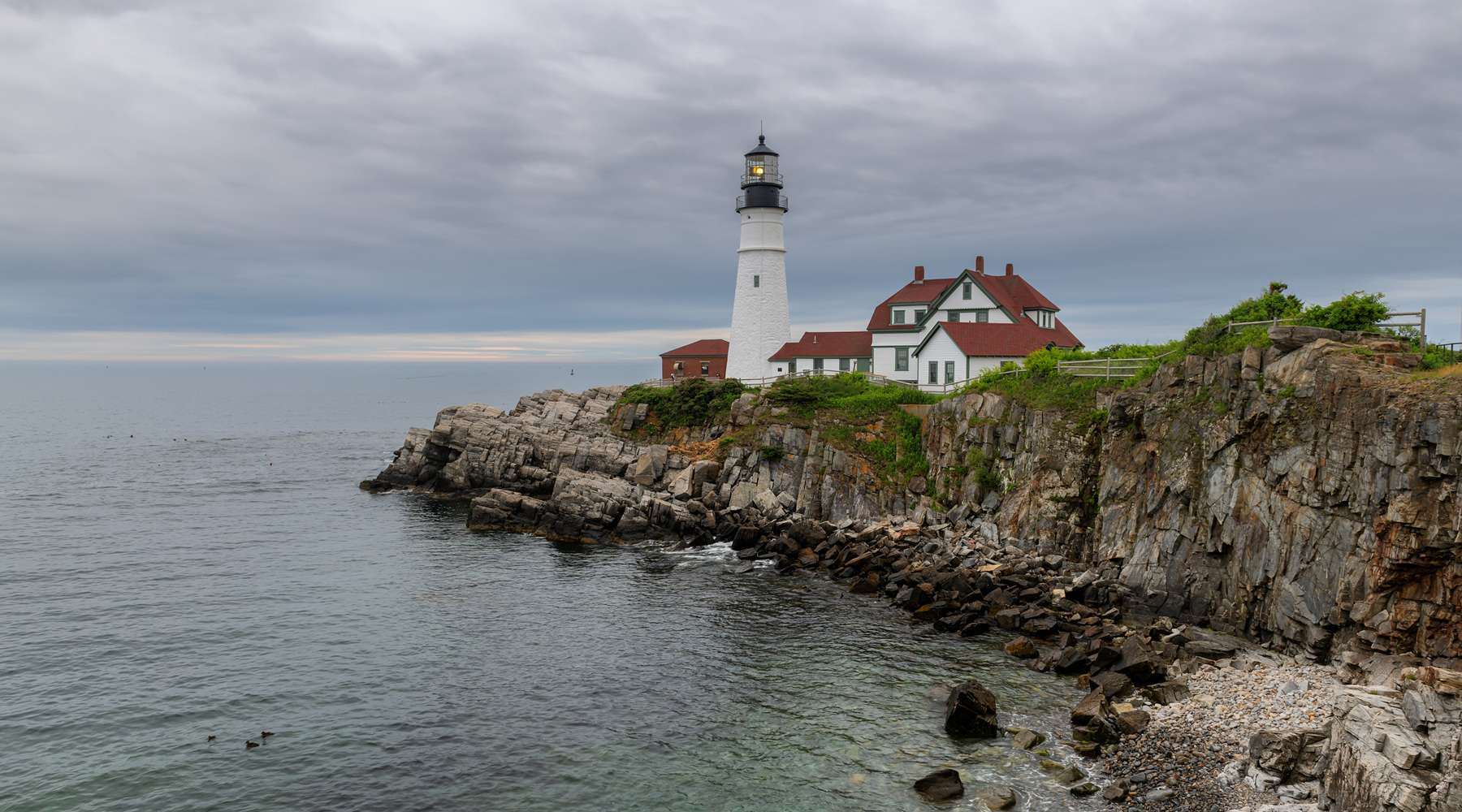
I arrived at Tuck as a lifelong North Carolinian who’d spent little time in New England. Prior to school, I spent four years at Monitor Deloitte, where I was an inaugural member of the firm’s ESG Strategy & Transformation practice. I am personally passionate about the intersection of food, health, and sustainability and viewed an MBA as an opportunity to (i) explore a new area of the country (ii) further align my career path with purpose and (iii) enhance my financial fluency with impact-driven investing experience. I focused on finding an internship opportunity that would advance those objectives.
Between my first and second years, I worked as a Summer Associate at Maine Venture Fund (MVF), the state-backed evergreen venture fund based in Portland, Maine. The experience deepened my knowledge of venture capital, public-private partnership, and impact—and gave me the opportunity to live in a new oceanside city for 10 weeks.
My favorite part of working at MVF was their commitment to mentorship. MVF led weekly educational sessions with me and cointern, Kelly Timmes T’24, on topics including due diligence, fund management, term sheets, cap tables, and impact. We also met regularly with Bold Ocean Ventures, a Portland-based venture firm focused on the Blue Economy, to share learnings and best practices. I emerged with a deeper understanding of how to run a venture fund, and considerations for embedding impact into the process.
Maine’s 10-year Economic Development Strategy highlights goals to grow the state into an “… international leader with a vibrant, sustainable, environmentally responsible economy”. In alignment with those objectives, we worked with MVF to create a strategic plan to 10x the fund’s impact over the next 10 years. We considered different levers for growth, including raising capital, specialization, and portfolio operations support. Through interviews with Maine stakeholders and other state-affiliated funds, I developed a strong understanding of the entrepreneurial ecosystem in Maine and New England at large. I also gained a rejuvenated appreciation for the power of aligning public, private, and nonprofit objectives—particularly for social topics, like sustainability and job creation, where collaboration is imperative. Most of my time, however, was spent with one of MVF’s portfolio companies, Tanbark.

Sailing day hosted by Captain Joe Powers
Tanbark Molded Fiber Products is a seed-stage sustainable packaging company. Tanbark manufactures Type 3 molded fiber, a material that closely resembles Thermoformed plastic, but without toxic threats to human and environmental health. For context, plastic is a petroleum-based product that generates significant greenhouse gas emissions, can take hundreds of years to degrade in the environment, and is rarely recycled. Moreover, packaging today is often coated with PFAs, which are linked to some of the most hazardous human health scandals of our generation. By contrast, Type 3 molded fiber is circular; commonly recycled; backyard compostable within 6–12 months; and does not leave behind toxins. There is immense opportunity to transform consumer, food, and healthcare sectors with more responsible packaging solutions. Of note, Tanbark was highlighted by Maine Governor Janet Mills and President Biden during my time there.

Pierce (second from left) and Governor Janet Mills (center) at Tanbark’s facility in Saco, ME
I helped the organization (i) identify and prioritize non-dilutive funding opportunities, (ii) research emerging global single-use plastics regulation, and (iii) enhance investor relations efforts to fuel sustainable growth. The Tanbark team was incredibly collaborative and inclusive in ensuring I had an educational summer—highlights included a trip to the University of Maine, attending Board meetings and regular company-wide check-ins.
Maine Venture Fund provided me with a unique opportunity to gain experience both with venture capital and working at an early-stage startup. Both experiences highlighted the increasing importance of integrating impact into core business strategy. A social impact lens attracts patient investors, collaborative partners, repeat customers and top-tier talent. To me, the modern essence of being a wise, decisive leader is a commitment to business that can—and should—be a force for good.
Thank you to Maine Venture Fund, Tanbark Molded Fiber Products, and the generous donors of Tuck GIVES for making the summer a possibility.
Living next to the ocean was pretty nice too.

Maine Outdoor Film Festival on the Eastern Promenade in Portland, ME

Pierce Gibson is a T’24 with an interest in the intersection of Food & Agriculture, Health & Wellness, and Sustainability. Prior to Tuck, Pierce worked at Monitor Deloitte. He holds a Bachelor’s degree in Public Policy & Political Science from the University of North Carolina at Chapel Hill.